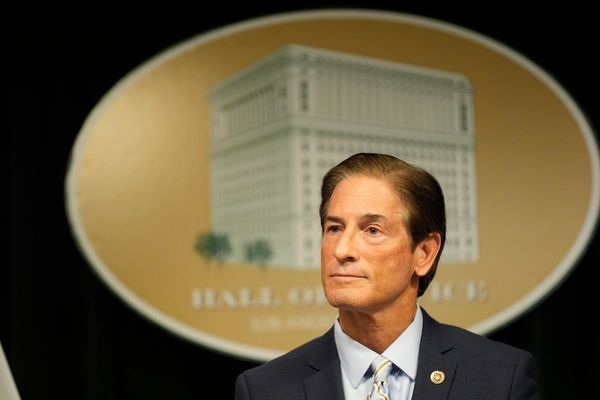
UK Chancellor of the Exchequer Jeremy Hunt will announce a major economic package on Nov. 17 as he tries to stabilize public finances and recover credibility lost in the turmoil of Liz Truss’s ill-fated administration.
Prime Minister Rishi Sunak’s finance minister is trying to identify more than £50 billion ($56 billion) of spending cuts and tax increases to get debt falling as a proportion of gross domestic product over the medium-term. Though no final decisions have been taken, here’s what could happen:
Higher Windfall Tax on Energy Profits
Hunt is considering extending the UK’s windfall tax on oil and gas companies, a levy first introduced by Sunak in May when he was chancellor. Hunt is looking at a significant expansion of the tax, raising the rate to 30% from 25%, and extending it to 2028 from 2026. He’s also considering applying it to electricity generators, according to a person familiar with the matter.
Such a move would increase revenue from the existing tax by 50% to £40 billion over five years, the Times newspaper reported, citing internal government estimates, though that’s dependent on volatile energy prices.
According to the Nov. 13 edition of the Sun, Hunt will raise the tax on North Sea energy companies to 35%, raising £45 billion.
Boosting Take From Income Tax
Hunt is due to extend a current four-year freeze on income tax thresholds and allowances, which was introduced by Sunak in 2021, raising about £5 billion a year by 2027-28, the Financial Times reported. The Telegraph said he may also raise the top rate of income tax from its current 45% level -- or lower the threshold at which it kicks in from £150,000 currently.
The threshold is set to be lowered to £125,000, according to several reports on the final weekend before the announcement.
Due to high inflation, a freeze on thresholds has the effect of dragging more people into the tax system or into higher tax bands, boosting revenue for the Treasury.
Increase Capital Gains Tax
The chancellor is also weighing an increase in the headline rate of capital gains tax, a levy on profits from the sale of assets. Current rates range from 10% to 28%, and a one percentage-point increase in the higher rate would be worth about £145 million, according to Treasury estimates.
He’s also considering cutting reliefs and allowances.
Cut to Bank Surcharge
Hunt plans to cut the surcharge on bank profits to 3% from 8% to shield them from the bulk of the already-announced rise in corporation tax. It’s a return to plans originally announced last year by Sunak when he was Chancellor.
Hit Shareholders
The tax-free allowance for dividend income is in line to be cut, two people familiar with the matter said, a move that would hit shareholders and owner-managers of businesses. It’s currently set at £2,000, but reducing it to £1,000 would raise about £455 million a year, according to Treasury calculations.
Hunt is also considering a 1.25 percentage-points increase in dividend tax rates, the Financial Times reported.

Freeze Foreign Aid
Hunt is expected to maintain the foreign aid budget at 0.5% of GDP for another two years, instead of increasing it to 0.7% in 2024-25 as Sunak had previously promised. The UK had spent 0.7% of GDP on foreign aid but cut the amount to 0.5% during the coronavirus crisis.
The move would save £4 billion a year, the Telegraph reported.
Raise Council Tax
The Chancellor may allow local authorities to raise more money from council tax, the Times reported. There’s currently a requirement for councils to hold a local referendum if they want to raise the levy by more than 2.99%.
Delay Social Care Reform
Hunt is planning to delay an £86,000 cap on lifetime social care costs for at least two years, a move that would save £1 billion in the first year, rising to £3 billion a year if the policy were ditched entirely, according to the Times.
Hit More Businesses With VAT
The Chancellor is preparing to freeze the £85,000 revenue threshold at which businesses must register to pay value-added tax until 2026, instead of raising it in line with inflation, the Telegraph reported. The move would mean that thousands more businesses pay the tax for the first time.
Cuts to Government Spending
Ministries are braced for real-terms spending cuts. The Treasury is considering pay rises of 2% across the public sector in 2023-2024, meaning below-inflation increases for nurses, teachers and police officers, the Times reported.
Cuts to spending on capital projects are also in prospect. Cabinet minister Michael Gove has indicated long-term projects could be delayed or axed.
Overall Hunt and Sunak are planning up to £35 billion in spending cuts, according to a person familiar with the matter.
Decisions on Welfare, Pensions
The government also has to make politically contentious decisions about whether to increase welfare and pension payments in line with inflation -- currently at 10% -- or aligned to the lower measure of earnings growth. Opting for the latter would save £13 billion, but would likely trigger a major political backlash.
Sunak and Hunt plan to reveal a stealth tax raid on pensions later this month, with the pension lifetime allowance set to be frozen for two more years, the Telegraph newspaper reported.
--With assistance from Agnieszka de Sousa.
©2022 Bloomberg L.P.







